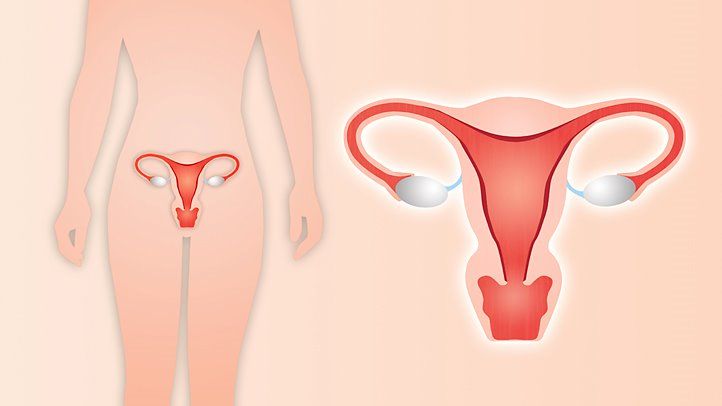Hysterectomy malpractice is an unfortunate reality for many patients, even in the United States. Unnecessary hysterectomies can be devastating for patients, thus prompting them to file a medical malpractice lawsuit. If you’re suffering from serious side effects after your hysterectomy, you may have a medical malpractice claim. Or, maybe your surgeon removed your uterus without your consent. In any case, if you suspect your doctor engaged in medical malpractice or medical negligence, you need a Houston personal injury attorney on your side.
At Reich and Binstock, we handle a wide variety of personal injury claims, including medical malpractice cases. For qualified legal advice from a law firm that truly cares, we invite you to schedule a free consultation with us. Anything you discuss with us is strictly confidential information. Call our office today at 713-622-7271 or fill out our online intake form.
What Is a Hysterectomy?

A hysterectomy is a procedure in which the uterus is surgically removed from the body. This surgery is often used as a last-resort treatment for a variety of medical disorders, including the ones listed below.
- Certain types of cancer
- Tumors, such as fibroids
- Chronic pelvic pain
- Pregnancy or childbirth reasons
When a myomectomy (uterine fibroid removal) fails to resolve the patient’s medical issue, a hysterectomy may be performed. Complete hysterectomies remove the uterus and its accompanying structures completely, whereas partial hysterectomies leave certain components intact.
There are several hysterectomy laws that differ from state to state. These regulations make it illegal to have a hysterectomy unless it is medically necessary. In general, a doctor must say that the surgery is extremely essential for the person’s health and that there are no other choices.
What Are the Risks of a Hysterectomy?
Hysterectomies are a dangerous surgical procedure. As a result, this technique should be thoroughly reviewed and debated. Only the patient and their doctor should make the choice to have a hysterectomy. As previously stated, hysterectomies are typically used as a last option after other therapies have failed. Hysterectomies, like any other major operation, can have a variety of risks and adverse effects.
Some of these risks include:
- Infection of wounds
- Affected or reduced sexual functionality
- Pelvic pain
- Urinary incontinence
- Premature menopause
- Recovery or healing issues
- Excessive bleeding
- Damage to the ureter
- Blood clots
- Bladder injury
- Reaction to anesthesia
- Hysterectomy granulation or vaginal vault granulation
- Perforation or obstruction of bowels
- In very serious cases, death
A botched operation, which arises when a medical error is made, might come after a hysterectomy. A surgical error is a mistake that might have been avoided during surgery. Errors that occur as a result of a botched operation go beyond what a patient was aware of before agreeing to the treatment.
According to medical malpractice law, if an injury or death happens as a result of a surgical error caused by carelessness or inattention, the sufferer has the right to bring a surgery complications case to collect damages. The same may be said with hysterectomy mistakes.
In situations that involve needless hysterectomy, legal action may be appropriate, since these cases have become more common in recent years. State legislation on the subject may differ, particularly in terms of the amount of money that can be awarded in a malpractice case.
Hysterectomy Procedure Types
Hysterectomy techniques range from partial to complete hysterectomy. The strategy that a doctor advises is typically determined by the medical problem that they are attempting to solve. The following are some examples of procedure types.
- Subtotal hysterectomy: Removal of only the upper part of the uterus, leaving the cervix in place.
- Total hysterectomy: Removal of the cervix and uterus, leaving other tissues in place.
- Radical hysterectomy: Removal of the cervix, uterus, surrounding tissue, and in some cases the ovaries, fallopian tubes, and top portion of the vagina.
The type of surgery employed depends largely on the type of hysterectomy performed, the experience of the surgeon, and the medical history of the patient. Two main forms of surgery include the following.
- Minimally invasive procedure: This includes hysterectomy methods such as vaginal or laparoscopic hysterectomy, in which the uterus is removed utilizing tiny incisions and modern instruments. Infection is less likely with these less intrusive operations. They frequently help people recuperate faster.
- Open surgery: The doctor must create a big incision across the woman’s belly to remove the troublesome organs and tissue in this treatment. Patients who undergo open surgery frequently need to stay in the hospital for a few days to recover. They also have an increased risk of infection after surgery.
Can a Doctor Perform a Hysterectomy Without Consent?
In the event of a life-threatening scenario, a doctor is legally permitted to perform a hysterectomy without the patient’s permission. After giving birth, for example, there may be uncontrolled bleeding. Because a hysterectomy is an irreversible procedure that prevents a woman from having further children, the doctor is required to have explored all other alternatives before proceeding.
A doctor must take precautions to control the bleeding before conducting this procedure, such as kneading the uterus and administering drugs. It can be difficult to tell whether a permanent procedure was necessary, so speaking with a Houston medical malpractice lawyer can help people figure out if they have a case.
What to Do if You’ve Been Injured Due to a Hysterectomy Procedure
Accountability for hysterectomy-related injuries frequently results in a legal lawsuit, in which the wounded individual is compensated for their mismanaged hysterectomy. These losses will most likely be comparable to those suffered in other personal injury and medical malpractice cases.
A lawsuit for an unnecessary surgery is self-explanatory. A patient files a lawsuit against their doctor for undergoing an unneeded hysterectomy. Any surgical operation that a surgeon conducts on a patient that they do not desire or require is referred to as unnecessary surgery. The technique does not treat an injury or enhance the quality of life for the individual in any manner. Recovery for a needless hysterectomy might include any damages resulting from medical misconduct or carelessness. Below, we list potential compensation for a hysterectomy malpractice claim.
- Lost wages
- Medical expenses
- Pain and suffering
- Wrongful death lawsuit filed by the family members of the deceased patient
Punitive damages, which are meant to penalize the defendant, may be recoverable if the injury was caused on purpose. Other damages, such as pain and suffering, are often capped at a particular level in some states.
How to Prove Medical Malpractice After a Hysterectomy

Medical malpractice does not apply to all hysterectomies-related issues. Despite medical experts doing everything properly, complications during and after major procedures like hysterectomies sometimes occur. When a physician, institution, or staff member performs the following, it is considered medical malpractice.
- Failing to inform a woman or patient of the risks associated with the surgeries
- Doing something negligent which contributes to a surgical or postoperative issue
- Failing to receive informed consent from the woman before performing the procedure, except in emergency situations
In addition, a woman may have a claim for medical malpractice if her doctor misidentified something that necessitated a hysterectomy or performed another unneeded hysterectomy. For example, if a doctor performed a hysterectomy on a patient who was bleeding after labor without first considering other options to control the bleeding, the doctor may be charged with medical misconduct. In order to prove negligent acts and receive compensation, you must prove the following.
- You had a doctor patient relationship with the operating physician.
- In treating your medical conditions, the health care professionals or facility did something negligent or did not follow the proper standard of care in treatments.
- The negligence directly led to or caused your injuries or symptoms.
- You have suffered specific damages due to the negligence of the physician.
Medical records to verify you didn’t have a preexisting disease, medical expert statements to explain how your doctor strayed from the standard treatment, and pay stubs to indicate income lost due to medical negligence are all examples of evidence you may use to support your case.
What Constitutes Medical Negligence?

When a doctor or other health care practitioner offers substandard treatment to a patient, this is known as medical negligence. To put it another way, the health care professional fails to offer the quality and amount of treatment that a responsible, local, comparably competent, and educated practitioner would provide in identical circumstances.
Failure to identify a hazardous ailment, failure to adequately inform a patient of the potential dangers of particular treatments, and unacceptable mistakes during surgery and other operations are all examples of negligence that rises to the level of medical malpractice.
Doctors aren’t infallible, and medical malpractice laws don’t expect them to be. The majority of medical malpractice claims revolve around the following questions: What was the proper medical standard of care in the scenario at hand? And did the defendant follow that standard or vary from it? Medical experts will very certainly be used by both sides of the dispute to support their claims.
How Can a Houston Medical Malpractice Lawyer Help?
Due to the huge gray area between what is acceptable and what is incorrect treatment, medical malpractice lawsuits are notoriously difficult. To establish that a medical practitioner failed to offer the accepted level of care, an experienced Houston medical malpractice lawyer will need to unearth important evidence.
In medical malpractice trials, the legal system is set up in such a way that considerable proof is required. Negotiations are favored, and jury trials are rare. The harmed patient bears the brunt of the burden of evidence. Our experienced medical malpractice lawyers at Reich and Binstock know what it takes to get you the reimbursement you deserve.
Contact Reich and Binstock Today
At Reich and Binstock, we offer a positive attorney client relationship for all those who come to us for advice. No matter how simple or complex your case, we’re here to guide you through the legal process after undergoing an unnecessary hysterectomy. Personal injury cases like these can be complicated, but that won’t stop us from fighting aggressively on your behalf. To schedule a free consultation with us, please call 713-622-7271 today. You can also fill out our online intake form.














